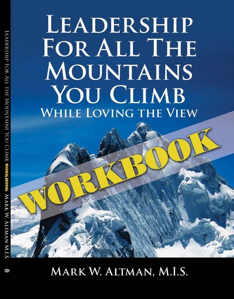If you will recall from your youth, Gumby was a claymation cartoon character who was very flexible. Like Gumby, we should all strive to be flexible, developing the ability to regain our original form after a tragedy. This is the definition of resilience.
There are few things in life a person can count on; but one of those things is the necessity of facing tragedy, either yourself, or a close loved one. While the bad news for us as emotional beings is the commonality of tragedy, the good news is the almost equal commonality of resilience in the face of such tragedy. One might even argue tragedy is necessary for our personal growth.
A testament to the universality of grief and resiliency came to me after I proposed this topic on my Facebook page. Several people wrote to me telling their own stories of grief, healing and resiliency. So the question becomes how do they, and by extension we, increase our capacity for bouncing back after tragedy and even becoming the stronger for having lived through the experience?
Mental health professionals counsel that resilience, or the ability to cope and even thrive, under difficult circumstances is a group of traits or a skill set anyone can develop. This development is best begun as a child, is never too late to develop and we should all be strengthening. Mentoring others to greater resilience is a good thing to practice, for it not only benefits the person you mentor, it reminds us how to be resilient during our own tragedies.
The American Psychological Association suggests ten ways to build resilience and the first is making connections. The love of family members and close friends is important, and should be cultivated long before tragedy strikes. If family is unavailable for some reason, then groups like faith based groups or civic organizations can be a source of strength.
Another trait to be developed before you need it is to develop a positive view of yourself. Developing self confidence and learning to trust your decision making processes is key to becoming resilient. Taking care of yourself physically, and emotionally, will provide some reserves of strength that may prove critical in a crisis.
When challenges occur, whether the loss of a loved one or a turn of economic fortune, try to keep the long-term perspective in mind and maintain a positive outlook. This allows you to believe that grief will not last forever, and challenges are not insurmountable.
Make a special point to continue to move toward your goals. If you don’t have written goals established, this is a good time to consider what they might be. Act upon those goals and take positive steps toward making them happen. The other half of goal achievement is the owning of circumstances that can’t be changed, and accepting that change is a part of living.
Last, look for opportunities for self discovery, as the grieving process is often an introspective and educative one. Much like saving money for a rainy day, the time to develop resiliency is when things are going well in your life and resiliency isn’t needed.
Along the path we travel, all of us experience grief, whether the sting of marital breakup or the knife thrust of losing a loved one. Know that we pain with you, but you are resilient and will come through the other side. Ask us for love and help today, so we may ask it of you tomorrow.
Mark Altman is a speaker and leadership consultant with the Altman Leadership Center. He has graduate work in Marriage and Family Counseling and is the author of Leadership For All the Mountains You Climb. He can be reached at mark@taolc.com.








No comments:
Post a Comment